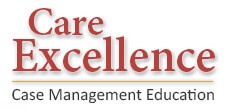Learn how to better manage your caseload
 Just as the number of people enrolled in health plans continues to grow, so too, does the average caseload for case managers. Due to a combination of legislative action, an aging population and an increasing number of chronically and seriously ill individuals, health plan enrollment has gone up, resulting in greater caseloads for care managers.
Just as the number of people enrolled in health plans continues to grow, so too, does the average caseload for case managers. Due to a combination of legislative action, an aging population and an increasing number of chronically and seriously ill individuals, health plan enrollment has gone up, resulting in greater caseloads for care managers.
According to research findings in a recent needs assessment by the funders supporting the Care Excellence initiative, concerted efforts are made to keep caseloads manageable. Additionally, experts agreed that caseloads over 35 were too high.
Still, care coordinators have an average caseload of 100 cases. Registered nurse care managers and social work care managers have an average caseload of 25‐35 cases. And care managers who function in a supervisory role of other care managers and/or care coordinators can be responsible for supervising upwards of 150 cases.
Care managers are also facing more complex cases.
In 2012, the Henry J. Kaiser Family Foundation reported that as the population ages, California will continue to see a high percentage of Medicare enrollees as well as an aging population also eligible for Medi‐Cal. These aging dual-plan participants are estimated to have two or more chronic conditions.
With a heavier and more complex caseload, consider the following ways to better manage your cases:
- Set your priorities.
Trying to do everything at once is impossible. Make a list and trust your list. Planning out what you need to do and when you need to get it done by is the best way to stay organized and manage your time.
- Stay focused on your cases.
Tick off one task at a time. Jumping from case to case is distracting. Whether meeting fact-to-face with a patient, communicating over the phone or email, or working on administrative duties, spend the appropriate time needed on a certain task before you move on to the next one.
- Expect the unexpected.
Although you have made a list with deadlines, expect life to throw a curveball every now and then. Whether a phone call, email or last-minute meeting, allow time for interruptions. Sometimes, plans change, so it is important to stay flexible.
- Consider every individual case.
Though you may be limited on time, do not look at every case as if it is a box to be checked off. Take the time to listen to your patients. Ask and answer questions.
“A successful case manager who is able to pause, who is able ask questions, who is able to be a coach instead of an expert, is the one who is going to make that person’s life better in the long-term because that person is going to walk out feeling like I can be successful,” said Dr. Kelly Pfeifer, director of High-Value Care at California HealthCare Foundation.
- Learn from your fellow care coordinators and case mangers.
Is there a care coordinator or care manager on your team who always seems to be on top of things? Talk to him or her. What best practices are they following? Remember, you are not in this alone. Brainstorm with your team members to identify what works and what does not work.
- Think about continuing your case management training.
Taking on more complex cases may mean you could benefit from more care management training.
With the support of California Health Care Foundation and The SCAN Foundation, the CSU Institute for Palliative Care worked with health plan leaders and care managers to create Care Excellence — a new resource for training all levels of health plan care managers to prepare them in all phases of their career for success. This includes training on how to handle complex cases.
“Health plans are taking care of more and more complex populations,” Pfeifer said. “These health plans are seeing people with severe mental illness, with addiction, with severe childhood trauma, with homelessness. These are folks that these health plans have never interacted with before or never worked with before.”
How Care Excellence Can Help
The Care Excellence Foundational series teaches essential skills to those new to care management, as well as those who would benefit from a review of fundamental knowledge and skills. The Advanced series was developed for experienced care managers and other professionals working with growing and diverse populations with special and complex needs.
“The advanced curriculum is specifically focused with some of the most challenging populations and how you earn trust, how you understand the social service network, and how to help work with a patient, figure out what is the most important thing for the patient and for that person’s health and solve that today,” Pfeifer said.
Care Excellence provides a flexible online source of continuing education for care coordinators and care managers, but also for supervisors, managers and others in leadership roles. The Care Excellence Leadership series gives leaders the educational resources necessary to know how to effectively supervise and mentor their care management team, including helping staff deal with burnout.
“The Care Excellence curriculum offers an opportunity for managers because this is a high burnout field,” Pfeifer said. “You are working with people with suffering that you cannot even imagine. An excellent manager of a program will help the staff deal with burnout, will have ways to give the staff energy through love and connection, and helping and creating a team where people really have each other’s back.”
